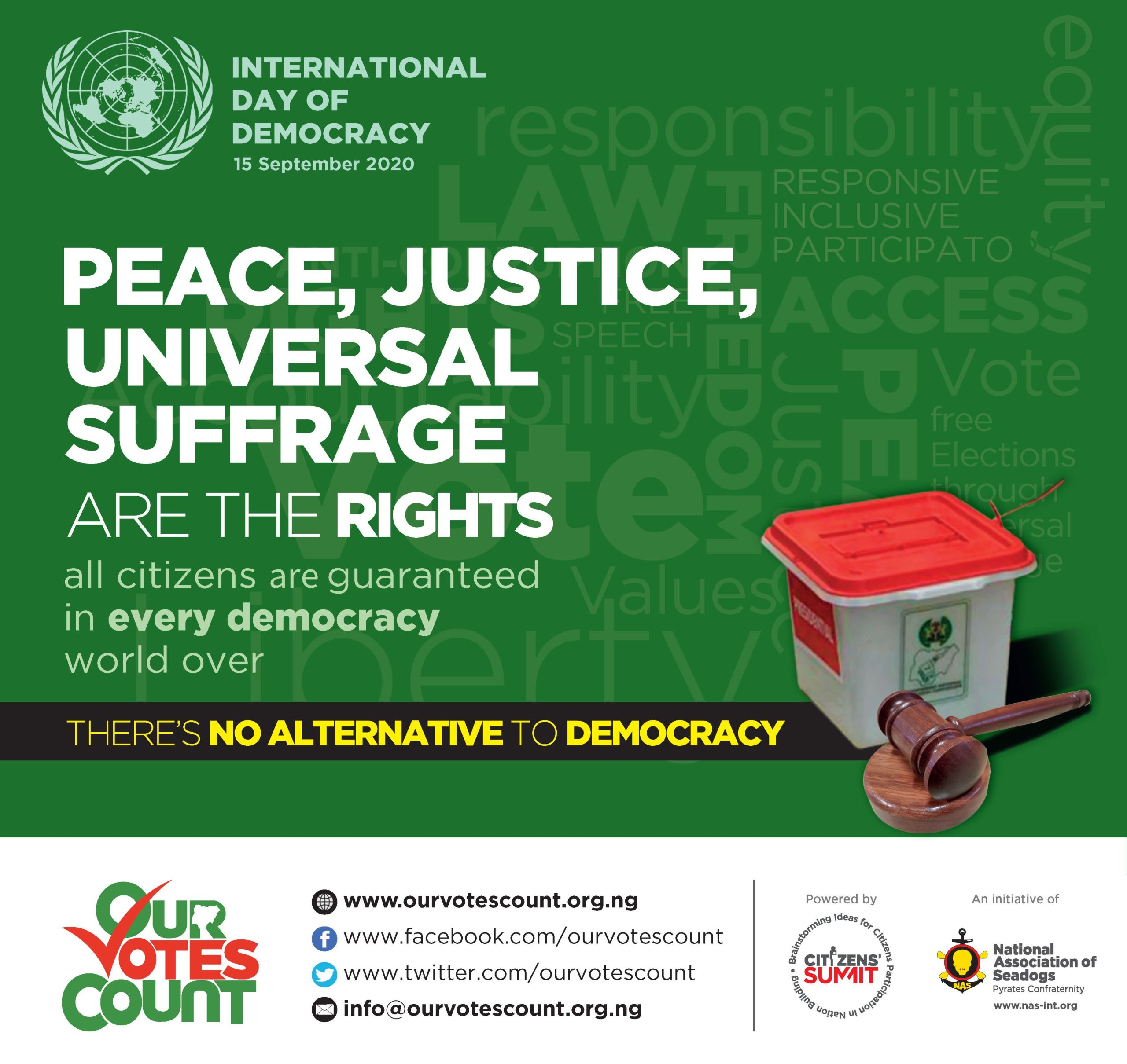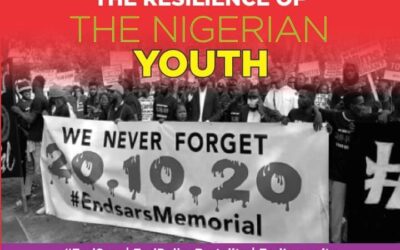In Nigeria’s 60 years of self-rule, her democratic journey has been chequered. From the First Republic government which took the reins from the colonial administration to the present Fourth Republic, Nigeria’s attempts at democratic rule have been interrupted by a cumulative 29 years of military interregnum. The country is currently enjoying her longest unbroken spell of democratic rule since 29 May 1999.
As the world marks this year’s International Day of Democracy, with the theme ‘Democracy under Strain: Solutions for a Changing World’, and this year’s celebration coinciding with the 70th anniversary of the Universal Declaration of Human Rights, emphasis should be to support human rights, the rule of law, peace and stability, which are all critical democracy development indicators.
The National Association of Seadogs, Pyrates Confraternity, congratulates Nigerians and the Nigerian government for keeping the fire of Democracy burning in the last twenty-one years of the Fourth Republic. Although the challenges have been enormous, the collective will of Nigerians has proven stronger than the divisive forces which habitually scuttled our democratic sojourn before now.
The citizens are the centrepiece of any democracy. While the people confer legitimacy of power through their votes, the elected government is expected to meet their needs and aspirations. Consequently, obnoxious policies like the recent hikes in Premium Motor Spirit pump price and electricity tariff at the same time, without taking into consideration the prevailing socio-economic realities, and the devastating economic impacts of the Covid-19 pandemic, are clearly insensitive, undemocratic, and unacceptable.
Also, the attempted passage of the vexatious Social Media Bill and the latest attempts at restricting media coverage of the National Assembly are potent threats to the guaranteed freedoms which should naturally be entitlements from our hard-won democracy. The loss of confidence in the integrity of the national electoral process, which is ridden with violence, voter intimidation, ballot rigging and complicity by state actors, heightens concerns about the future of democracy in Nigeria.
According to the Global Terrorism Index 2020, Nigeria currently ranks third in the list of most terrorised countries in the world, just behind Afghanistan and Iraq. In the same week, the 2020 mortality estimates released by the United Nations Children’s Fund (UNICEF) revealed that Nigeria has overtaken India to become the world’s number one contributor to deaths of children under the age of five; a development that was actualised two years earlier than predicted, according to Thisday Newspaper report of September 10, 2020.
Human security, whether defined as freedom from want (access to a minimum threshold of food, water, healthcare, shelter, education, and work), or freedom from fear (national or territorial security), is an essential entitlement of democratic governance. Therefore, any threat to security in Nigeria, occasioned either by ineffective and harsh economic policies, or the activities of terrorists and other criminal elements, portend great danger to the survival of Nigeria’s democracy.
Against this backdrop, we demand as follows:
- That governments at all levels must strive harder towards strengthening the time-tested components and pillars of democracy namely: security and welfare of the people, rule of law, equality, rights, liberties, and opportunities.
- That political institutions including the Independent National Electoral Commission, political parties, pressure groups, the arms of government, mass media, and civil society groups, need to be strengthened and accorded full independence from interference in the drive towards deepening our democracy.
- That President Muhammadu Buhari should revisit and sign into law the 2019 Electoral Reform Bill presented to him before the 2019 general elections, and equally to ensure a conducive environment for a free press and for civil society organisations to flourish, in the interest of democracy.
- That equality before the law is non-negotiable in a democracy. The recurrent disobedience of court orders granting bail to Nigerians in criminal proceedings initiated by the Federal Government, and such other brazen illegalities deemed injurious to our body polity are major obstacles to the attainment of enduring democracy. Selective justice, preferential or detrimental treatment in the application of the law are an anathema to democracy.
- That the Federal Government of Nigeria must do more than the jaded rhetoric of “bringing the perpetrators to book” and other such ineffectual clichés towards finding a lasting solution to the ethnic and religious tensions in Kaduna, Plateau, Benue and other affected parts of the country.
Nigeria as the largest democracy in Africa should be the torchbearer and pacesetter in the propagation and entrenchment of democracy across the African continent and beyond. This year’s celebration offers the nation another opportunity to reflect on the imperatives towards deepening and elevating democratic governance in Nigeria.
Abiola Owoaje
NAS Cap’n
Abuja, Nigeria




